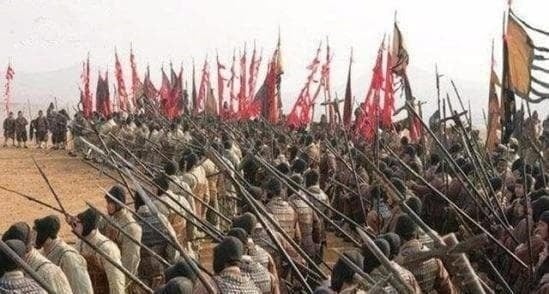Human physiology is an integral part of our lives, encompassing basic activities such as eating, personal hygiene, sleep, and especially sexual needs — an important instinct that contributes to the survival and development of humankind.
How did ancient soldiers manage their physiological needs?
This is a less-discussed yet practical aspect of ancient military life, especially for massive male-dominated armies like those in ancient China.
In the ancient Chinese military, the majority of soldiers were men, and addressing their physiological needs became a significant challenge. It required solutions to maintain the stability and health of the fighting force, both mentally and physically. Over the centuries, various methods were employed, but not all of them were humane or acceptable to modern standards.
One of the less cruel approaches was allowing the wives of high-ranking officers and soldiers to accompany the army. Their presence not only fulfilled the soldiers’ emotional and physiological needs but also provided daily care and comfort, alleviating homesickness and contributing to their overall well-being and morale.

However, this method was limited to a small number of high-ranking individuals and was not always feasible, as ancient societies often confined women to domestic roles, and few had the experience to cope with the harsh military environment.
On the other hand, more cruel measures were also implemented, such as the utilization of “military prostitutes.” These women, selected by the court to serve the soldiers, often lacked social standing and lived in a state of captivity. They were frequently abused, serving as mere tools for the soldiers’ sexual release without any protection or rights. Their suffering, both physical and mental, is a tragic yet under-discussed part of ancient military history.
Additionally, during wartime, soldiers were encouraged to capture and violate women from conquered territories. This served not only to satisfy their physiological needs but also to boost morale and assert dominance over the defeated enemy. However, the consequences for these violated women were grave, leaving deep scars on both the individuals and society as a whole.

These methods reflect the brutality and harshness of ancient warfare and shed light on how women were viewed and treated in ancient societies. Often, they were considered spoils of war, subjected to exploitation and denied basic rights and protections.
However, in modern times, there has been a significant shift towards a more civilized approach to addressing physiological needs in the military. Organizing social events and providing opportunities for soldiers to meet and connect with potential partners is now commonplace and considered a polite and humane way of managing these needs.
Additionally, the increasing presence of women in modern military forces has contributed to a healthier work environment, promoting gender balance and respect for all members of the armed forces.


































